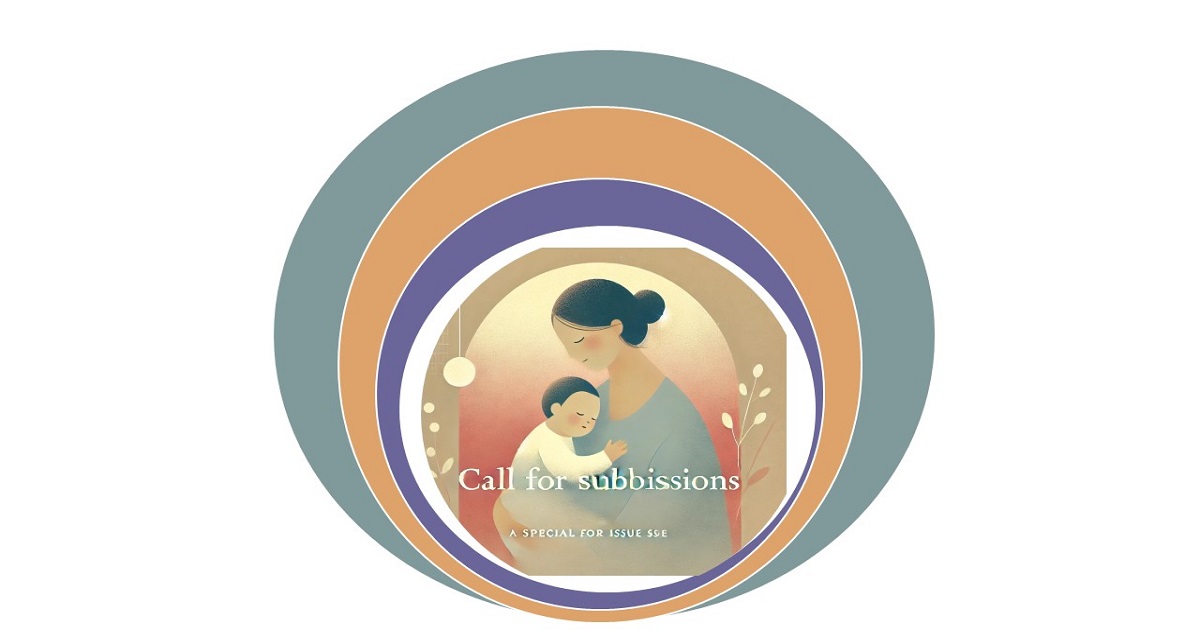- 2.1Impact Factor
- 3.8CiteScore
- 16 daysTime to First Decision
Mitigating the Impact of Maternal Mental Health Challenges on Children's Development
This special issue belongs to the section “Pediatric Mental Health“.
Special Issue Information
Dear Colleagues,
Substantial evidence demonstrates the detrimental effects of maternal mental health challenges on the cognitive and social-emotional development of children. Maternal depression, particularly during critical periods such as pregnancy and early childhood, has been linked to adverse developmental outcomes, including increased risks for emotional and behavioral disorders, cognitive delays, and difficulties in social functioning. Both retrospective and prospective studies have documented that the underlying effects are complex, influenced by factors such as timing, severity, chronicity, and comorbidity. For example, maternal depression coupled with anxiety is associated with altered parenting behaviors, such as reduced responsiveness and increased negativity, which can disrupt the development of secure attachments and emotional regulation in children. Although to a lesser extent, studies have also highlighted the role of environmental factors, such as social support and access to mental health services in moderating the effects of maternal mental health on child development.
In addition, the literature highlights the critical role of early intervention and supportive strategies in mitigating the impact of maternal depression on child development. Interventions that target both the mother and the child have been found to be particularly effective, with programs focusing on enhancing maternal mental health, improving parenting skills, and fostering secure mother–child attachments showing promise in reducing the negative outcomes associated with maternal depression. Moreover, research emphasizes the importance of an integrated/comprehensive approach that considers the broader social determinants of health, including socioeconomic status, social support, and access to healthcare services, which can influence both maternal mental health and child development outcomes. This body of evidence underscores the need for comprehensive, multidisciplinary strategies to address maternal depression and support healthy child development, making it a critical area of focus for ongoing research and intervention efforts.
We invite submissions that explore the mechanisms underlying the impact of maternal depression and anxiety on child development, with a focus on identifying factors that mitigate these effects. We are particularly interested in research that examines the role of environmental influences, including social determinants of health, in buffering the impact of maternal mental health challenges. Additionally, we seek studies on interventions designed to reduce the negative effects of maternal depression and anxiety on developmental outcomes, with the goal of preventing adverse consequences for future generations.
Submissions may include, but are not limited to, the following topics:
- Studies examining the differential impacts of maternal depression or anxiety on children's socioemotional outcomes across various socio-economic, racial, and ethnic groups.
- The role of family dynamics, social support networks, and community resources in moderating the effects of maternal depression or anxiety on children.
- Evaluation of programs and interventions that support mothers and children of mothers experiencing depression or anxiety.
- Research on the effectiveness of community and policy-level interventions in promoting equitable outcomes for children affected by maternal depression or anxiety.
- Studies on protective factors that contribute to resiliency in trajectories are protective for children affected by maternal depression or anxiety.
- Analyses of barriers to accessing support and services for underserved communities and strategies to overcome these challenges.
- Innovative approaches and best practices for integrating equity-focused frameworks into programs addressing maternal depression or anxiety in relation to child development.
We welcome submissions from diverse disciplines, including psychology, psychiatry, social work, public health, and education, to foster a comprehensive understanding of these critical issues. Our goal is to advance research and share interventions that promote effective and equitable solutions to support the health and well-being of children affected by maternal mental health challenges.
Dr. Nanmathi Manian
Prof. Dr. Pamela J. Surkan
Guest Editors
Manuscript Submission Information
Manuscripts should be submitted online at www.mdpi.com by registering and logging in to this website. Once you are registered, click here to go to the submission form. Manuscripts can be submitted until the deadline. All submissions that pass pre-check are peer-reviewed. Accepted papers will be published continuously in the journal (as soon as accepted) and will be listed together on the special issue website. Research articles, review articles as well as short communications are invited. For planned papers, a title and short abstract (about 250 words) can be sent to the Editorial Office for assessment.
Submitted manuscripts should not have been published previously, nor be under consideration for publication elsewhere (except conference proceedings papers). All manuscripts are thoroughly refereed through a single-blind peer-review process. A guide for authors and other relevant information for submission of manuscripts is available on the Instructions for Authors page. Children is an international peer-reviewed open access monthly journal published by MDPI.
Please visit the Instructions for Authors page before submitting a manuscript. The Article Processing Charge (APC) for publication in this open access journal is 2400 CHF (Swiss Francs). Submitted papers should be well formatted and use good English. Authors may use MDPI's English editing service prior to publication or during author revisions.
Keywords
- maternal mental health
- maternal depression
- child development
- program Interventions
- protective factors
- underserved communities
- family dynamics
- equity frameworks
- social determinants of health
- community resources

Benefits of Publishing in a Special Issue
- Ease of navigation: Grouping papers by topic helps scholars navigate broad scope journals more efficiently.
- Greater discoverability: Special Issues support the reach and impact of scientific research. Articles in Special Issues are more discoverable and cited more frequently.
- Expansion of research network: Special Issues facilitate connections among authors, fostering scientific collaborations.
- External promotion: Articles in Special Issues are often promoted through the journal's social media, increasing their visibility.
- e-Book format: Special Issues with more than 10 articles can be published as dedicated e-books, ensuring wide and rapid dissemination.

